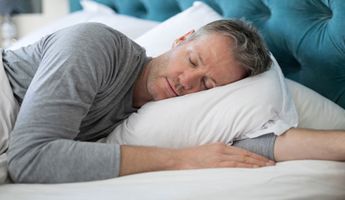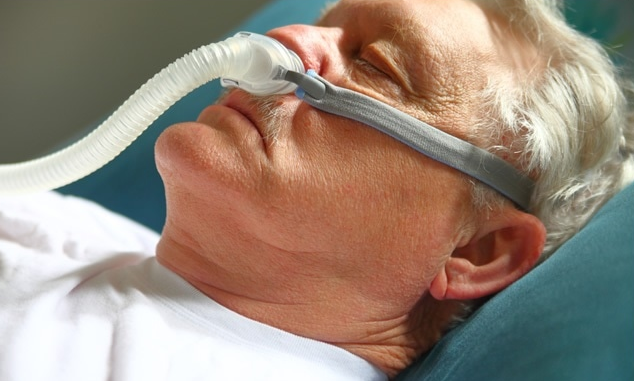Sleep Apnea Surgery in Czech Republic
Search and Compare the Best Clinics and Doctors at the Lowest Prices for Sleep Apnea Surgery in Czech Republic

Find the best clinics for Sleep Apnea Surgery in Czech Republic
No pricing info available
Egypt offers the best prices Worldwide
Price: $ 18
From 1 verified reviews
jasmin lueth, 13 January 2020
A reliable Institution with qualified employees. At the beginning I was very unsure, wether we would be successful there. Today I am happy to have gotten the gift of a wonder on the second try. So, so happy, thank you!
- Home
- Czech Republic
WHY US?
At Medijump, we're making medical easy. You can search, compare, discuss, and book your medical all in one place. We open the door to the best medical providers worldwide, saving you time and energy along the way, and it's all for FREE, no hidden fees, and no price markups guaranteed. So what are you waiting for?

Free

Best Price

Widest Selection

Risk-Free
What you need to know about Sleep Apnea Surgery in Czech Republic

Sleep apnea surgery is recommended when other types of treatment have not improved your sleep apnea. There are various types of sleep apnea surgery and each one focuses on a few different body parts, including the nose, tongue, palate (the soft tissue in the back of your mouth and throat), as well as the bones of your face, jaw, and neck.
What does a Sleep Apnea Surgery Procedure Involve?
Nasal surgery is performed if you have a deviated septum or any growths such as polyps that can get in the way of your breathing. With tongue surgery, part of the base of your tongue is removed or your tongue is firmed up by pulling the muscles that attach it to your jaw in order to keep your tongue from blocking your airway. If your doctor recommends palate surgery, your doctor may perform tonsillectomy, uvulopalatopharyngoplasty, palate radiofrequency, or palate implants. If you need surgery to your bones, your surgeon may break your upper and lower jaw and move everything forward to make your airways bigger.
How Long Should I Stay in Czech Republic for a Sleep Apnea Surgery Procedure?
Depending on which procedure you underwent, you may need to stay in Czech Republic for 7 to 14 days or until your surgeon allows you to travel. During your stay, you will attend follow up checkups where your condition will be monitored and any stitches will be removed.
What's the Recovery Time for Sleep Apnea Surgery Procedures in Czech Republic?
The recovery period varies depending on the type of surgery you undergo as well as your overall health. It may take several weeks or months until you can return to your normal activities (including work and exercise) and eat your normal diet.
What sort of Aftercare is Required for Sleep Apnea Surgery Procedures in Czech Republic?
Different types of surgery may have different aftercare. Your surgeon will give you a set of instructions that include wound care, dietary restrictions, and exercises. You may also need to attend a follow-up checkup with your local doctor to monitor your healing progress.
What's the Success Rate of Sleep Apnea Surgery Procedures in Czech Republic?
Sleep apnea surgery is generally safe and effective. Removing part of your base tongue has around 60% success rate, but surgery performed to your bones offer a higher success rate. The side effects and risks of sleep apnea surgery are infections, excessive bleeding, deep vein thrombosis, urinary retention, additional breathing problems, and allergic reaction to anesthesia.
Are there Alternatives to Sleep Apnea Surgery Procedures in Czech Republic?
Surgery is normally not required if your problem can be managed with non-surgical treatment. Your doctor may recommend a nerve stimulator, mouthpieces, special pillows, or a device called Continuous Positive Airway Pressure (CPAP) as the alternatives. Make sure to discuss with your doctor the best option for your case.
What Should You Expect Before and After the Procedure
Sleep apnea prevents you from sleeping well, making you feel sleepy and unable to think straight during the day. It can be dangerous for your day-to-day life and increase the chance of having an accident while driving or at work. After the surgery, you can start sleeping well and your quality of life will be greatly improved.
Whilst the information presented here has been accurately sourced and verified by a medical professional for its accuracy, it is still advised to consult with your doctor before pursuing a medical treatment at one of the listed medical providers
No Time?
Tell us what you're looking for and we'll reachout to the top clinics all at once
Enquire Now

Popular Procedures in Czech Republic
Prices Start From $404

Prices Start From $308

Prices Start From $2,104

Prices Start From $2,487

Recommended Medical Centers in Czech Republic for Sleep Apnea Surgery

- Interpreter services
- Translation service
- Religious facilities
- Medical records transfer
- Medical travel insurance
- Health insurance coordination
- TV in the room
- Safe in the room
- Phone in the room
- Private rooms for patients available

- Interpreter services
- Translation service
- Religious facilities
- Medical records transfer
- Medical travel insurance
- Health insurance coordination
- TV in the room
- Safe in the room
- Phone in the room
- Private rooms for patients available

- Interpreter services
- Translation service
- Religious facilities
- Medical records transfer
- Medical travel insurance
- Health insurance coordination
- TV in the room
- Safe in the room
- Phone in the room
- Private rooms for patients available

- Interpreter services
- Translation service
- Religious facilities
- Medical records transfer
- Medical travel insurance
- Health insurance coordination
- TV in the room
- Safe in the room
- Phone in the room
- Private rooms for patients available

- Interpreter services
- Translation service
- Religious facilities
- Medical records transfer
- Medical travel insurance
- Health insurance coordination
- TV in the room
- Safe in the room
- Phone in the room
- Private rooms for patients available

- Interpreter services
- Translation service
- Religious facilities
- Medical records transfer
- Medical travel insurance
- Health insurance coordination
- TV in the room
- Safe in the room
- Phone in the room
- Private rooms for patients available
Sleep Apnea Surgery in and around Czech Republic
The Czech Republic is a landlocked country in Central Europe and it has a rich and eventful history, as well as amazing attractions. From medieval towns and magnificent castles to picturesque national parks and relaxing spa resorts, it has a lot to offer. The country also boasts top-quality healthcare and is emerging as a popular medical tourism destination. Medical procedures in the country are performed with the latest technology and techniques. The medical professionals are highly qualified, well trained, and internationally recognized. Besides, the cost of medical procedures in the country is extremely competitive. Medical tourists can make significant savings compared to most other countries in Europe. Cosmetic surgery is particularly popular among international medical tourists.
Popular Parts of Czech Republic
Prague is the capital and is popular for its fine dining, eccentric nightlife, and wonderfully preserved medieval buildings with Gothic architecture, such as Prague Castle, the 14th-century Charles Bridge, and the Astronomical Clock. Along with Prague, Ceský Krumlov and Brno are frequently visited by tourists as well.
Weather and Climate in the Czech Republic
Due to its location, the Czech Republic has a mostly temperate climate. Extreme weather is rare, but the summers can get hot and the winters cold. Summer starts in June and the days can be scorching hot. The average temperature is around 26°C, but in recent years, it tends to rise to 37°C. Winter, from November to March, can get rather cold. The average temperatures drop to around 2°C during the day and -2°C at night, with some snowfall and rain. Spring (March-May) and autumn (September – October) have beautiful weather.
Getting around in the Czech Republic
Václav Havel Airport Prague is the main airport where international visitors fly into and out of the Czech Republic. It serves numerous flights to many cities around Europe and Asia, including London, Moscow, Dubai, and Seoul. The Czech Republic has an affordable and reliable public transport system. Domestic flights are available, but rarely necessary. The rail network is affordable and very comprehensive, covering almost every city and town in the county. The bus also has extensive coverage throughout the country. Public transport within cities is also excellent. In major cities, you can opt for the metro, tram, bus, or trolleybuses. Taxis are widely available and are metered, but the fares are higher at night.
Tourist Visas in the Czech Republic
Nationals of all EU countries do not need a visa to visit and stay in the Czech Republic. The country is a part of the Schengen area, which means citizens of around 62 countries can stay for up to 90 days without a visa. These visa-exempt countries include Australia, Canada, the US, and South Korea. Citizens of other countries are required to apply for a visa before visiting the country. Those who want to receive medical care should obtain a Czech Republic Visa for Medical Purposes.
Additional Information
- Local Currency: Czech Koruna/Czech Crown (CZK) is the currency of the Czech Republic. 1 USD is equivalent to 22.98 CZK. Note that the euro is not widely accepted in the country.
- Money & Payments: ATMs are widespread around the Czech Republic. Major credit cards, such as MasterCard and Visa, are accepted for many types of transactions, but you may need to pay in cash for smaller amounts. Tipping is expected, especially in restaurants. Tip at least 10% of the bill.
- Local Language: The official and most commonly spoken language is Czech, but Slovak is widely spoken as well. Many people, particularly in major cities, can speak English and German.
- Local Culture and Religion: Most of the population is religiously unaffiliated and does not believe in God. However, Christianity is the largest religion. Judaism, Islam, Buddhism, and Paganism are also practiced by a small percentage of the population.
- Public holidays: New Year’s Day, Easter Monday, Liberation Day, Sts Cyril & Methodius Day, Jan Hus Day, Republic Day, and Czech Statehood Day are some of the most important public holidays in the Czech Republic.
Popular Searches
- Plastic Surgery in Thailand
- Dental Implants in Thailand
- Hair Transplant in Thailand
- Breast Augmentation Thailand
- Gastric Sleeve in Thailand
- Gender Reassignment Surgery in Thailand
- Laser Hair Removal in Bangkok
- Botox in Bangkok
- Dermatology in Bangkok
- Breast Augmentation in Bangkok
- Coolsculpting in Bangkok
- Veneers in Turkey
- Hair Transplant in Turkey
- Rhinoplasty in Turkey
- Stem Cell Therapy in Mexico
- Rhinoplasty in Mexico
- Liposuction in Mexico
- Coolsculpting in Tijuana
- Rhinoplasty in Korea
- Scar Removal in Korea
- Gastric Sleeve in Turkey
- Bone Marrow Transplant in India
- Invisalign in Malaysia
- Plastic Surgery in the Dominican Republic
- Tummy Tuck in the Dominican Republic
- Plastic and Cosmetic Surgery in Poland
- Rhinoplasty in Poland
- Hair Implant in Poland
- Dental Implants in Poland
- IVF in Turkey
